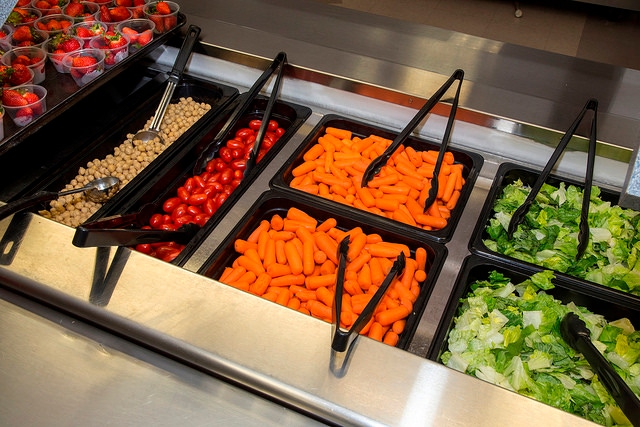September 1, 2020

USDA will extend several flexibilities through as late as Dec. 31, 2020, allowing summer meal program operators to continue serving free meals to all children into the fall months.
USDA’s Food and Nutrition Service is extending a suite of nationwide waivers for the Summer Food Service Program and Seamless Summer Option through the end of 2020, or until available funding runs out. This includes:
Reducing the accounting burden on schools by providing meals to every student for free rather than forcing schools to develop a system to track and charge students who receive free, reduced price or paid meals, which could have caused families to incur meal debt.
Allowing families to continue to pick up meals at one location rather than making parents go to different schools if they have multiple children in different school districts.
Providing meals for every day of the week. Meals would have been reduced to only 5 days per week or less.
Permitting community childcare organizations to continue providing meals. Many organizations like Boys and Girls Club and the YMCA are giving meals to children that are spending days there if their school is on a rotational schedule.
USDA is taking this action to respond to the needs of its stakeholders, who have shared concerns about continuing to reach those in need without enlisting the help of traditional summer sites located throughout communities across the U.S.
“During the COVID-19 pandemic, USDA has provided an unprecedented amount of flexibilities to help schools feed kids through the school meal programs, and today, we are also extending summer meal program flexibilities for as long as we can, legally and financially,” said Agriculture Secretary Perdue. “We appreciate the incredible efforts by our school foodservice professionals year in and year out, but this year we have an unprecedented situation. This extension of summer program authority will employ summer program sponsors to ensure meals are reaching all children – whether they are learning in the classroom or virtually – so they are fed and ready to learn, even in new and ever-changing learning environments.”
“School Nutrition Association greatly appreciates USDA addressing the critical challenges shared by our members serving students on the frontlines these first weeks of school. These waivers will allow school nutrition professionals to focus on nourishing hungry children for success, rather than scrambling to process paperwork and verify eligibility in the midst of a pandemic," said School Nutrition Association (SNA) President Reggie Ross, SNS.
“Many of our families who might not qualify for free meals are still going through a tough time and are worried about how to keep food on the table," said Lindsay Aguilar, RD, SNS, Director of Food Services for Tucson Unified School District, AZ. "Now their children will have one less thing to worry about as they adjust to evolving in-school and remote learning scenarios. These waivers also eliminate a massive administrative burden for our school nutrition staff, allowing them to focus on feeding children.”
Senate Agriculture Committee Chairman Sen. Pat Roberts, R-Kansas, praised the waiver.
“I applaud USDA’s work with state agencies, schools, and non-school sponsoring organizations to collaboratively provide meals through the department’s child nutrition programs when schools were unexpectedly closed in the spring, through the summer, and now again as schools wrestle with these challenges as the school year begins," Roberts said.
Sen. Debbie Stabenow, ranking member of the Senate Agriculture Committee, who joined Rep. Robert C. "Bobby" Scott in writing a letter to Perdue urging USDA to provide meals to students for the entire 2020-21 school year, likewise praised the decision.
“I’m pleased the USDA has finally listened and agreed to extend important school meals flexibilities," Stabenow said. "This is a positive first step forward that will ensure millions of children in Michigan and across the country will get the healthy food they need to learn and thrive. Because many schools will need this certainty to continue, I encourage the department to take the next step and extend these flexibilities for the full school year.”
USDA says Congress did not authorize enough funding for the entire school year. The summer meal program waiver extensions are based on current data estimations. Over the past six months, partners across the country have stood up nearly 80,000 sites, handing out meals at a higher reimbursement rate than the traditional school year program. USDA has continuously recalculated remaining appropriated funds to determine how far it may be able to provide waivers. Reporting activities are delayed due to states responding to the pandemic; however, based upon the April data, FNS projects that it could offer this extension, contingent on funding, for the remaining months of 2020. USDA will continue to actively monitor this rapidly evolving situation and continue to keep Congress informed.
Since the start of the public health emergency, FNS has been maximizing existing program services and flexibilities to ensure those in need have access to food through 15 federal nutrition assistance programs. To date, USDA has provided more than 3,000 flexibilities across these programs. USDA has also leveraged new and innovative approaches to feeding kids, including a public-private partnership that provided nearly 40 million meals directly to the doorsteps of low-income rural children.
Sources: USDA, Office of Sen. Pat Roberts, Office of Sen. Debbie Stabenow
About the Author(s)
You May Also Like




